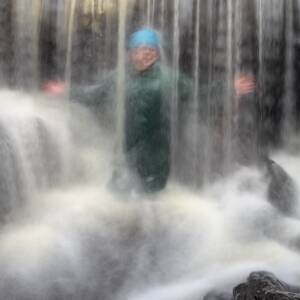cuentos Orihuela
¡Que no! No, not this time. This was the time to act.
Behind him lay the dry ridges and caves of the sierra where decades ago El Chulo had hidden and fought when Falangist troops entered the town. His grandfather had been Mayor – conservative, tacit Francoist - and had tipped all his Republican friends off to get out or get shot. A warning, not a threat.
It got his grandfather shot, at least according to his brother, El Chulo. One day he was arrested and taken away and that’s all anyone knows. His land was confiscated. His family vacated to a cousin’s farm where they tended the lemons and pomegranites. El Chulo, well he turned up a couple of decades later in his fedora and earring and charm and told them about his grandfather's bravery and how he had been killed for helping his Republican friends. Of days of resistance from these very sierras. Catching and eating snakes, drinking from subterranean water trickling down the cave wall. Sabotaging the trucks of the army: oh how the flames licked the sunset sky! Painting obscene slogans on the doors of the church.
For the family those were days of penury. Of pushing dust around a field. When it rained it rained Saharan dirt. Their lives turning to powder. It couldn’t last and finally his mother and father went to Switzerland where an uncle had work for them. He was put under the care of the Church with his brother and the very thought of the nuns opening the packages of chocolate that arrived from Switzerland and eating them slowly in front of him and his brother was his first lesson in fury and powerlessness. Talking back, or refusing instructions, got you beaten and starved. There was no risen Christ, not there, only silence and obedience.
The family did come home from Switzerland and for years they ran a bar. El Portillo: the sluice gate used to irrigate the parched fields. An auspicious name: a place of water, of slaking your appetite; a place to laugh and argue and grow within the town community.
And he did. The barren fury was diluted by life and a family and children and he took over the bar from his aging parents. He was nicknamed after his granduncle and liked to shout down centrists and conservatives with his communist passions. They came anyway and loved to argue with him, the marble counters and tiled walls a cacophony of passionate declamations. He condemned heartless capitalism and he condemned the church most of all.
Yet for being anti-capitalist he was quite the entrepreneur. He knew where the money lay in bars: the slot machines. These gambling franchises were drinks that made you thirsty. A deep well. The bar made some money, but the real money was owning and licensing them. So he bought one and put it in place of his old one, without consulting the company. When their agent came in to collect the takings and found someone else’s machine there he said there would be trouble. Paperwork trouble. Money owed troubles.
He tried to go to court to get the contract annulled, but it was binding for another 15 years. He was left with an expensive machine he couldn’t plug in. He looked at it’s dead lights and inert spindles taking up room in the bar and felt that the nuns were eating his chocolate again.
His fury came back. He denounced the company to all who came, until they became only a trickle of hardened loyalists willing to lend an ear for a free drink. He found out the price of a life was 1500 euros when a Russian builder in for a morning coffee and brandy said he could have the agent killed for that amount. This brought him to his senses, but only just.
Now here he was sitting outside the agent’s house with a rag and gasoline in a canister. He was El Chulo after all, and he was going to blow up the agent’s car. It was time to strike back. How pleasing the flames would be licking the dry heat.
- 2
- 0

Comments
Sign in or get an account to comment.


